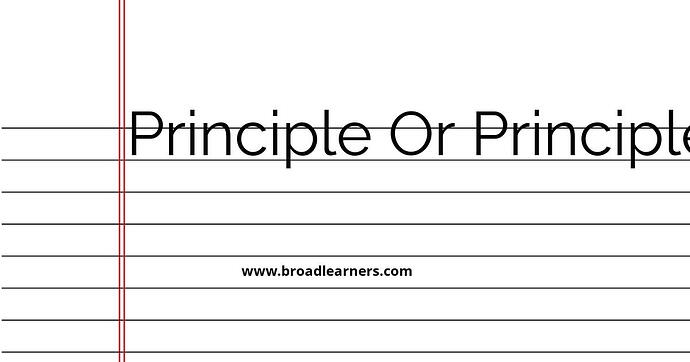'Principle' and 'principal' are commonly confused words in English grammar. Understanding the difference between 'principle' and 'principal' is important to use them correctly in written and spoken English.
'Principle' is a noun that refers to a fundamental truth or belief that serves as the foundation for a system of thought or behavior. It can also refer to a rule or law that is used as a basis for decision-making or action.
'Principal' can be used as both a noun and an adjective. As a noun, it refers to the head or leader of a school or organization. It can also refer to a sum of money that is invested or borrowed, on which interest is calculated.
Let's take a closer look at the meanings and usage of 'principle' and 'principal'.
| 'Principle' | 'Principal' |
|---|---|
| The word 'principle' is used to refer to a fundamental truth or belief. | The word 'principal' is used to refer to the head of a school or organization. |
|
|
To remember the difference between 'principle' and 'principal', it can be helpful to remember that 'principle' is a noun that refers to a fundamental truth or belief, while 'principal' can be used as both a noun and an adjective and refers to the head or leader of a school or organization.
Here are some examples of correct usage:
- I believe in the principles of honesty and integrity.
- The principal of the company made an important announcement.
- She borrowed a principal amount of $10,000 from the bank.
Remembering the correct usage of 'principle' and 'principal' will improve your grammar and communication skills.
